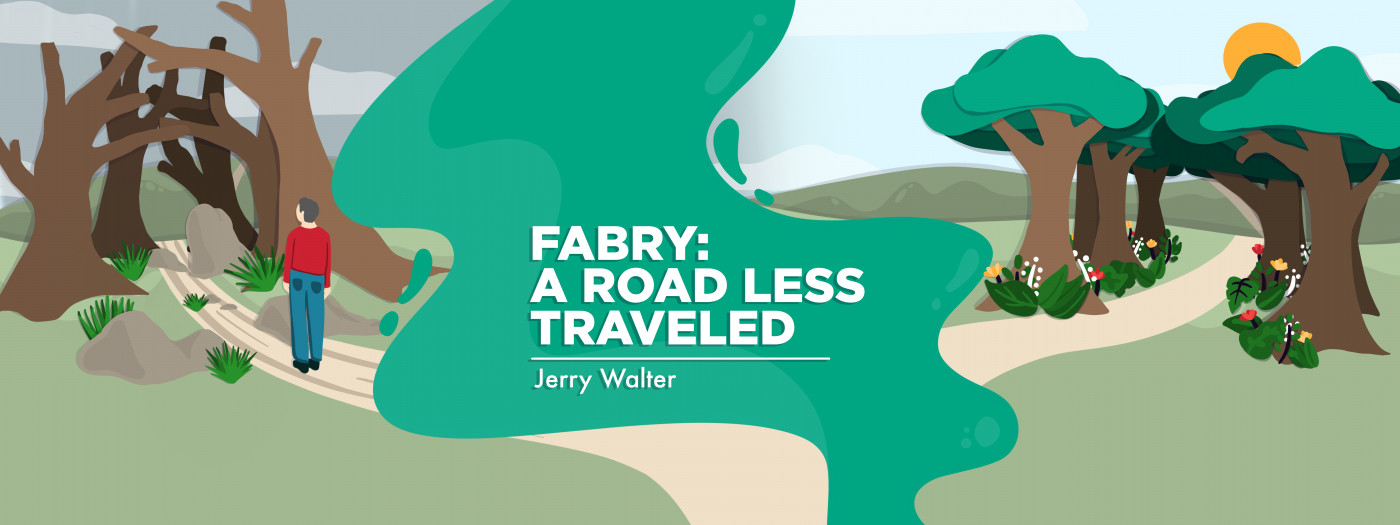Making a Difficult Decision to Protect My Health During the Pandemic

While we all make decisions in our lives, it’s important to think through the consequences of the most significant ones, especially when they involve our health and the COVID-19 pandemic.
Living with Fabry disease, a rare and potentially life-threatening disorder, has made many of my decisions more challenging and complex. That said, I am thankful for most of the decisions I’ve made.
For instance, when I was diagnosed with Fabry at age 25, the average age of death for an untreated man with the disease was 41. So, I reevaluated my life and changed my goals to pack as much life into my remaining years as possible. I was adventurous, opting to travel more and experience other customs and cultures. Now 67, I’ve surpassed expectations, and am thankful I decided to live a full life. My world is bigger as a result, and I have many wonderful memories.
In my efforts to make the best decisions possible, I often reflect on the decision-making process I learned at the U.S. Army Officer Candidate School, as well as an Army training program that qualified me to do operations research and systems analysis. Both experiences remind me to determine and evaluate all possible courses of action when making important decisions.
Putting my skills to the test
I recently had to decide whether I should temporarily discontinue one of my three heart transplant anti-rejection medications ahead of my fourth dose of the COVID-19 vaccine. It’s somewhat risky, but I believe it’s my best option for protecting myself.
Although the U.S. Centers for Disease Control and Prevention confirmed that the COVID-19 vaccines are safe and effective, studies have shown that some immunocompromised people may have a weaker antibody response than the general population. This can be dangerous, as people with weakened immune systems are more likely to experience severe outcomes from COVID-19.
As a transplant recipient, I have a weakened immune system. I’ve also developed kidney and lung disease due to Fabry, all of which puts me at a higher risk for severe illness. Unfortunately, this also prevented my body from developing any protective antibodies after my first three doses of the vaccine.
So, I asked my heart transplant doctor about pausing one of my anti-rejection medications, which suppresses my immune system, for two weeks, in hopes of increasing the efficacy of my fourth shot.
Although pausing my medication puts me at a low risk of organ rejection, I want to ensure I’m protecting myself against the virus, especially given the recent, rapid spread of the omicron variant. I’m being diligent about wearing a face mask and social distancing, but infection is still a concern.
Pandemic shortages
Additionally, if I were to get COVID-19, I worry about receiving proper and timely care. The pandemic has created a shortage of hospital beds and medical staff across the U.S., and I don’t know if I’d be able to access monoclonal antibody treatment to help me fight the infection.
Despite all of my training, experience, and good fortune in beating the life expectancy statistics, this was a difficult decision to make, as the consequences could be fatal.
Jerry receives the COVID-19 vaccine in 2021. (Courtesy of Jerry Walter)
My transplant doctor agreed that temporarily stopping one of my medications is worth the risk, as it will give me a better chance to develop protective antibodies against the virus. He explained that he wouldn’t recommend this for most transplant patients, but felt it was OK for me because I haven’t experienced any signs of rejection since my heart was transplanted in September 2020.
I stopped the anti-rejection medication on Jan. 12, and will resume it after I receive my fourth dose of the COVID-19 vaccine today, Jan. 26.
Now I must live with my decision, whatever the outcome may be. I look forward to seeing if my body produces antibodies following today’s shot. Hopefully, no complications will arise. Wish me luck!
Note: Fabry Disease News is strictly a news and information website about the disease. It does not provide medical advice, diagnosis, or treatment. This content is not intended to be a substitute for professional medical advice, diagnosis, or treatment. Always seek the advice of your physician or other qualified health provider with any questions you may have regarding a medical condition. Never disregard professional medical advice or delay in seeking it because of something you have read on this website. The opinions expressed in this column are not those of Fabry Disease News or its parent company, Bionews, and are intended to spark discussion about issues pertaining to Fabry disease.








Diane
Always wishing you luck!
Jerry Walter
Thank you, Diane! All the best to you!
Nancy
Jerry, So happy for you and good luck on your new heart. You were a great help to me when I learned that my husband had Fabry's and was having a kidney transplant 30 years ago. Also you gave me information when he had a heart valve replacement. He is doing well but did get covid but has come through that. Again take care. Nancy
Jerry Walter
Thank you, Nancy! Best wishes to you both!